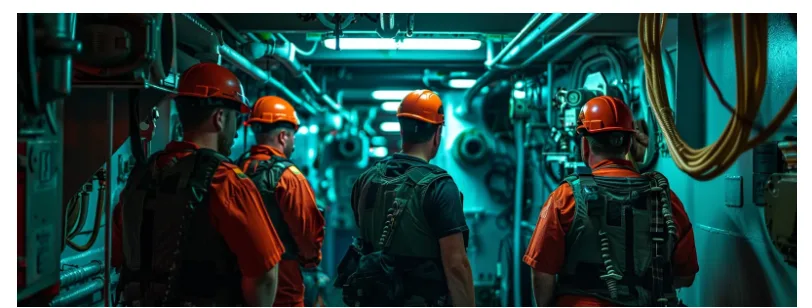Don’t Cut Corners: The Critical Role of Reliable Marine Safety Gear
Navigating the vast and often unpredictable marine landscape necessitates a deep reliance on safety equipment that transcends mere regulatory compliance; it becomes a matter of life and death. Crews at sea are at the mercy of the elements, and having robust and reliable marine safety gear is their first line of defense. From personal flotation devices to distress signals, the quality and condition of this equipment can greatly impact the outcome of perilous situations. Understanding the importance of this gear and investing in its maintenance is crucial for those at sea. Keep reading to discover the significance of dependable marine safety gear and best practices in the maritime industry.
The Critical Role of Reliable Marine Safety Gear in Navigating the Seas
The unpredictable nature of the sea demands that mariners be equipped with the most reliable safety gear. Whether a recreational sailor or a member of a commercial shipping crew, reliance on quality equipment can significantly reduce the risk of accidents or enhance survival rates during emergencies. Life rafts, life jackets, and man-overboard systems are not mere accessories; they are vital tools for survival.
Selecting reputable suppliers and brands recognized for their commitment to safety and durability is crucial. In this respect, organizations like Universal Safety play a fundamental role in providing marine safety equipment that meets and exceeds the necessary standards, offering peace of mind to those who depend on it.
Marine safety gear acts as an essential buffer against the harsh realities of the sea. Incidents such as capsizing, fire, or collisions require a quick and effective response, and the quality of the safety gear in use can make a fundamental difference. The construction, resilience, and reliability of this equipment are paramount to ensuring that those aboard can withstand the wait for rescue.
Understanding the Regulations and Standards for Marine Safety Equipment

Regulatory bodies have set stringent standards and regulations for marine safety equipment to ensure high levels of protection for those at sea. These regulations cover the entire manufacturing process, including regular inspections and maintenance requirements. Non-compliance can lead to severe penalties, including fines and increased liability in the event of an accident.
Internationally recognized regulations, such as those established by the International Maritime Organization (IMO), are adopted by merchant ships and marine vessels to standardize safety procedures and ensure the quality of equipment. These rules ensure that, regardless of a vessel’s origin, it is equipped to face the trials of the sea with gear that meets global safety standards.
National bodies, such as the United States Coast Guard, enforce these regulations by conducting regular inspections and certifications to ensure that marine vessels are suitably equipped. These inspections also verify crew familiarity with safety procedures, underscoring the importance of training in conjunction with equipment availability.
Taking time to comprehend these regulations and their implications for marine safety is essential for shipowners and operators. Ignorance of the law is no excuse, and when it comes to marine protection, the stakes are significantly higher. Compliance is not just a legal requirement but a moral imperative to ensure the safety of those at sea.
Investing in Quality Marine Safety Gear: A Lifesaver in Harsh Conditions

The initial investment in high-quality marine safety gear may seem substantial, but its value is beyond measure when faced with life-threatening circumstances. Quality gear often comes with enhanced features, more durable materials, and a greater likelihood of functioning correctly when needed most. Skimping on quality is a gamble with human lives and the environment — a gamble that is not worth taking.
The benefits of premium safety gear extend beyond functionality. Such equipment often requires less frequent replacement and can be more resistant to the harsh marine environment, making it a wise long-term investment. Additionally, well-maintained, high-quality gear may positively impact insurance premiums and the vessel’s overall value.
For commercial operators, investing in quality safety gear can also positively affect their reputation. It signifies to clients, regulatory bodies, and the public that the company prioritizes safety and is committed to the welfare of its crew and environment, fostering trust and reliability in its operations.
The importance of reliable marine safety gear is indisputable, serving as a crucial safeguard against the unpredictability and dangers of the sea. A proactive approach to safety, investing in quality equipment, adhering to strict standards, conducting routine maintenance, and ongoing crew training can avert disasters and save lives. Let this be a guiding principle for anyone who takes to the water, reminding us that at sea, safety should never be an afterthought.
